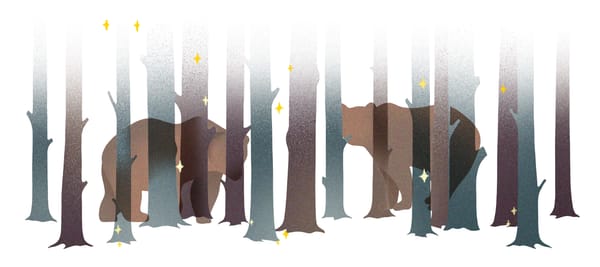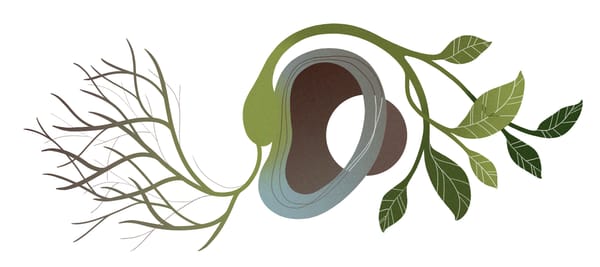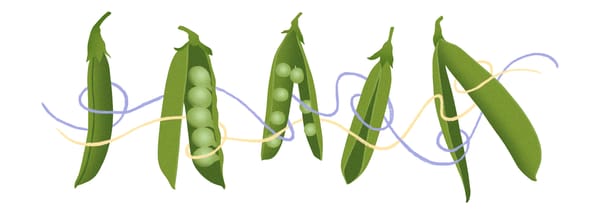Yellow Boat
by Debra Gwartney | The routes we travel.

And so he would die on Christmas Day. It was mid-afternoon when the truth landed: in a matter of hours, my husband would be gone. It wasn’t as if I still believed he might, maybe, turn a corner and get better—the daughters and I had been with him for days, moving in and out of the living room where his hospital bed was set up, waiting for the end. But waiting for the end and meeting the end are two different matters entirely.
I was outside without a jacket, wearing one of his flannel shirts, frayed at the cuffs. The daughters, too, in his shirts, so we looked like striped versions of him huddled together against the cold. An unusual bitter cold for western Oregon. Eyelashes starting to freeze, nose hairs already there. My teeth ached. The daughters had led me out to the porch to show me the gift they’d carried up the hill—my women friends and my children had pooled money for it. This present might as well have been called You will go on. You must go on. It was a boat. An expensive and shiny kayak, without a blemish. The same model as the two kayaks that had burned, disappeared to grit, in the wildfire that raged through our valley in September. This new one leaned against the wall of the rental house where my husband and I had been stashed since the fire. Its angle somehow suggested a future I wasn’t yet ready to negotiate, let alone accept. He wouldn’t see me unload this kayak on the McKenzie River, climb in and dip my paddles into the water. I wouldn’t come home to tell him about heron rookeries or eagles stealing trout from ospreys. The clatter of kingfishers. I wouldn’t call him on my way to ask what we should have for dinner. There’d be no dinners, no more plates or bowls on the table. The two of us would not again step into the dwelling where we’d lived together for more than two decades.
After the fire, a friend called to inquire about our fate. My husband said, “We still have a house, but we have no home.” The house stood, shimmering in lipstick-pink fire retardant, a stench inside like death. We were lucky. Six neighbors to the west lost everything; eleven neighbors to the east lost everything. My husband stood on a mound of ash and surveyed his losses: his truck, ten cords of split wood, his tool shed, his generator, the small shed where he’d stored lumber for five decades. His archive, a building he’d constructed to contain his life’s work—built far from the main house in case there was ever a fire. All burned. I was lucky. I kept quiet about my kayaks (my insignificant loss), though I stirred a piece of wire through the ash that first day we were allowed to return, hoping to see a flash of color.
I held my daughters; thanked them. I decided to make my way back into the warm rental house and crawl into bed with my husband, the narrow hospital bed where he lay on his back, gasping for the last air that would feed his lungs. I’d tell him about the boat. “It’s yellow,” I’d say, so he might imagine, for a moment, my course on the water. But when I got there, my arms around his collapsing chest, I realized that he was beyond any such knowledge. Maybe he had already bubbled underwater—clacking with the boulders in the river he’d turned to every day for sustenance—or he could be up in the canopy of the stubborn Doug firs, the few that didn’t burn, or perhaps he was slung in a curve of wings and filament, a cradle that would transport him to a new place beyond fire and air, beyond the neighbors’ twinkling holiday lights. He was in his own conveyance now, traveling his own route, and my only job was to let him go.
Debra Gwartney is the author of two books, Live Through This and I Am a Stranger Here Myself. Her essays have been widely published in journals and magazines. She’s been awarded two Pushcart Prizes, and has twice had work selected for the Best American Essays series. Debra lives in western Oregon.
This essay is a Short Reads original.
⚡ Join us for Flash February and write your own short read during the year’s shortest month! Details →

Want more like this? Subscribe to Short Reads and get one fresh flash essay—for free—in your inbox every Wednesday.






